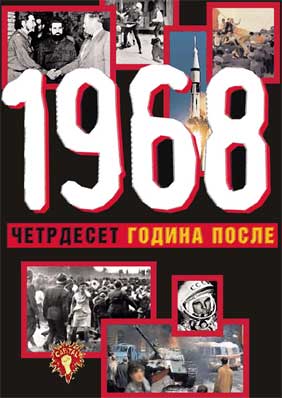
Selected Bibliography on 1968
Библиографија изабраних радова о 1968. години
Selected Bibliography on 1968
More...
Selected Bibliography on 1968
More...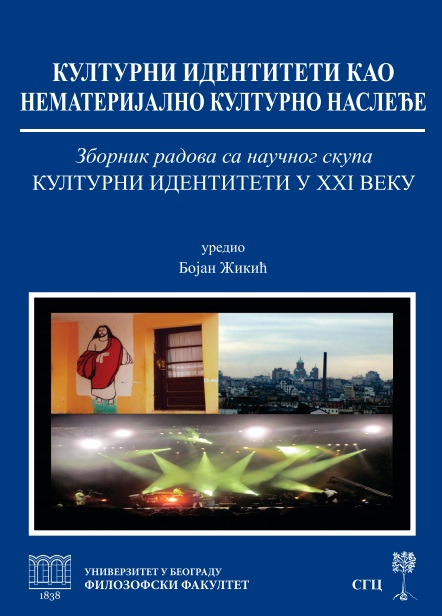
U tekstu su predstavljeni prvi rezultati u radu na projektu "Urbani kulturni identiteti i religioznost u savremenom kontekstu i okruženju". S obzirom na to da je istraživanje u početnoj fazi, sve izloženo predstavlja samo početne premise i prve hipoteze koje će, nadamo se, obezbediti bogatu iskustvenu građu za dalju interpretaciju. Izneti su podaci kojima raspolažu državne institucije a koje se tiču statusa i "vidljivosti" religijskih organizacija u Srbiji. Zavodi za statistiku, Ministarstvo vera i Agencija za privredni registar, svaka na svoj način, značajne za dobijanje relevantnih podataka o verskim organizacijama priznatim i registrovanim na teritoriji države, primenjuju potpuno različite kriteriju me i klasifikacije za određenje različitih oblika religijskog organizovanja. Kao jedna od posledica neadekvatnog Zakona o crkvama i verskim zajednicama, veliki broj alternativnih religija je registrovan, uglavnom, kao udruženja građana, pa je njihovo učešće u religijskm životu u Srbiji u najvećoj meri nepoznanica.
More...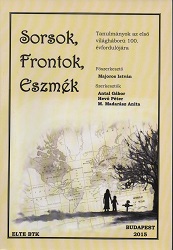
Keywords: hinterland; Hungary; book publishing; National Széchényi Library; First World War Collection; homefront; everyday life;
The political and military history of the First World War is well examined by historians, but researchers usually pay less attention to the matters of the homefront. This is problematic, because the war between 1914 and 1918 made an impact in all aspects of life. Book publishing was not an exception. The military activity and the difficulties of the heartland were discussed by the released books. This study wants to introduce the main directions and trends in Hungarian book publishing and present the former First World War Collection of the National Széchényi Library.
More...
Keywords: First World War; family story; oral history; battlefield diary;
A family may cherish some typical information about a soldier’s life, which otherwise would not have survived. A ticket-inspector, Dániel Zsengellér (1889–1979), a corporal in the 38th Infantry Regiment of the Austro–Hungarian Monarchy was seriously wounded in the war against Serbia on September 8th 1914. First it was presumed that he died but thanks to a series of lucky chance survived. The story of his survival, which he later told his family members several times, became a family legend. Even during the communist era, when the First World War had no official cult, the story was handed down by his descendants to the younger generations as a piece of oral history. The paper presents and analyzes the humble objects related to the story, which have also been kept – a battlefield diary, photographs, medals, rings, shells, military records.
More...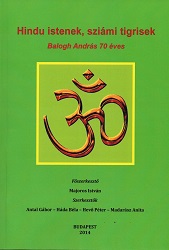
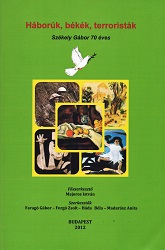
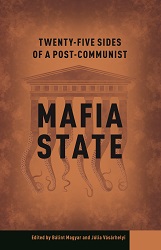
Keywords: post-communist transformation period;privatization processes;Hungary;Orbán’s government;Eastern Europe;
It would be plausible to construct a ‘variety of communisms’ theory, categorizing the state-socialist economies not only by region but by historical epoch. China, for example, imitated the Stalinist model in the first years after the Revolution, but by the 1960s the PRC had developed its own unique social and economic institutions. The goulash communism of János Kádár’s Hungary, which took shape after 1956, differed drastically from the classical Soviet model. Nevertheless, during the last decades of state socialism, the communist societies were broadly on a convergence trajectory: the gap between Czechoslovakia or Hungary and the USSR, for instance, narrowed. State ownership of the means of production, the redistributive nature of economic integration and the political monopoly of the Communist Party created a homologous institutional environment. The system largely suppressed the legacies of pre-communist times.
More...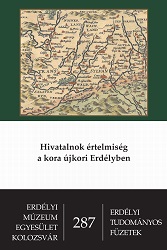
Keywords: Bartos de Sziget Family; Princely Officials
The service of the king played a particular role in upward social mobility in premodern Hungary, as the monarchs – thanks to the specific sovereign rights – had opportunities not comparable with that of the other members of society to reward subjects dear to them. Many commoners also managed to acquire nobility or seigneurial rights in the 15th and 16th centuries, thanks to their erudition (literacy and proficiency in Latin) which made it possible for them to be employed in the monarchic administration. The government of the Principality of Transylvania, a new state that emerged in the eastern part of Hungary in the mid-16th century, played a similar role. The present study gives the history of a family as an example of this.The father lived in Sziget, a small town in the north-eastern region of Hungary, and his profession possibly was that of a saddler. His sons were given an education. Péter started working at the Princely Treasury as an auditor (rationista), György supposedly served in the Princely Chancellery as a scribe, and István had been the private secretary to lords, and then worked as a scribe of the Princely Chancellery. The father already had been ennobled by a charter (this was usual among craftsmen from the end of the 16th century), and his sons were granted exemption for their plots in Sziget by the Prince. After the untimely death of the two elderly brothers, only István remained alive; he was awarded with estate donations as well by the Prince, and then entered into a marriage with a noblewoman from a well-to-do seigneurial family, inheriting landed properties by his marriage as well. After all, he used the cash from his father’s heritage or his court service to purchase the landed properties from different landlords being in difficulties. He attached great importance to good farming on the acquired landed properties. Old seigneurial families immediately accepted him, the homo novus, as one of them: this is clearly shown by the marriages of István and his children.
More...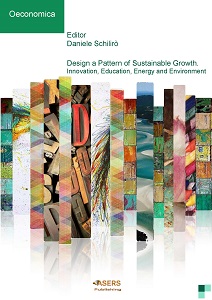
Keywords: Greek crisis; current-account rebalancing; coopetition; cooperation; competition
We propose a model of coopetitive-game (of normal-form type) within a perspective of economic growth and devote it to Greek crisis. The model is conceived at a macro level and its main aim is that of rebalancing the current-account of Greece. We construct the game trying to represent feasible scenarios of the strategic interaction between Greece and Germany, which is the strongest economy of the euro area. We shall suggest - after a deep study of our sample - feasible transferable-utility solutions, in a properly-coopetitive perspective, for the divergent interests of Greece and Germany.
More...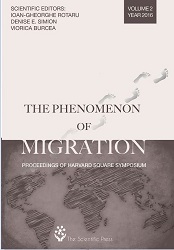
Keywords: Hussite; religious persecution; sect; heretics; acceptance; Moldavia
The study shows a few issues related to the migration of the Hussite believers during the 15th century due to the lack of religious freedom and religious or economic persecutions they were subjected to in Bohemia and Moravia which were their homeland, migrating towards Poland, Hungary, Transylvania and Moldavia where they found shelter and religious acceptance. A notable fact is that the rulers of Moldova at the time, Stefan the Great and Alexander the Kind who were Orthodox christians, not only did they offer the Hussite the possibility to leave in peace and unbothered by anybody due to their religious believes but even offered them certain privileges. The study shows that religious tolerance is a demonstration of love and respect towards another, indispensable qualities of a believer’s spiritual life.
More...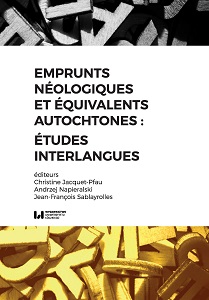
Keywords: semantic loans; semantic change; Quebec; emprunt semantique; changement semantique; francais
In this communication, we examine the use of four words (alternative, opportunite, supporter, versatile) considered to be English semantic loans in some of their uses in Quebec French. These uses are caracterised by the fact that they conflict on an axiological level with some of the French meanings of the same words. Comparative analysis of a lexicographic corpus (1880–2013) and Quebec written French corpora (1992–2012) shows that the meanings branded as “English” are the most commonly used. However, even though the axiological opposition they introduce results in semantic ambiguity, the various processes of semantic change that allow these meanings to make sense show that the “English” loans are not as foreign or borrowed as they seem. The appropriateness of intralingual equivalents such as solution, occasion, appuyer and polyvalent is re-evaluated on the basis of the results presented here. // Cette communication porte sur l’utilisation de quatre mots (alternative, opportunite, supporter, versatile) dont certaines acceptions sont considerees comme des emprunts de sens a l’anglais en francais au Quebec et qui ont pour caracteristique commune d’entrer en conflit, au plan axiologique, avec les acceptions francaises des memes mots. L’analyse comparative d’un corpus lexicographique (1880–2013) et de deux corpus quebecois de francais ecrit (1992–2012) permet de montrer que les sens marques comme anglais constituent les usages les plus frequents de trois de ces mots. Les processus de changement semantique qui permettent a ces sens de faire sens malgre l’ambiguite introduite par l’opposition axiologique sont divers, mais signalent tous que les sens « anglais » ne sont pas si « etrangers » qu’ils le semblent de prime abord. L’adequation des « equivalents » intralinguaux solution, occasion, appuyer et polyvalent est reevaluee au regard des resultats de l’analyse.
More...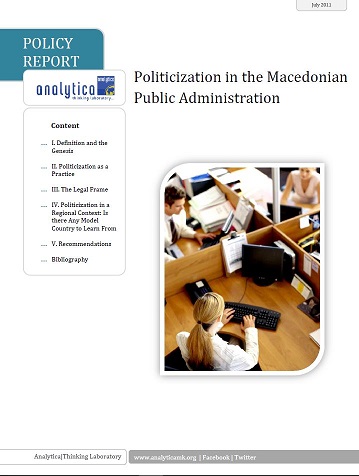
Keywords: North Macedonia; public administration reforms; apolitical administration; democracy; depolitization of public institutions; civil service; EU integration; Law on Civil Servants; supervision in civil service;
Public administration (PA), as the apparatus through which political decisions are executed, has long been considered a constituent part of government’s staff. The idea of an independent and apolitical administration was initially introduced by Woodrow Wilson in his “The Study of Public Administration” (1887) and its practice still remains relatively new, as the PA is in a constant reformation. This line of thought was initially applied in states oriented toward democracy and market economy, while highly centralized communist states disregarded the trend. Interest in the politics-administration dichotomy has reached Southeastern Europe only after the fall of the socialist regimes; yet even since, politics and politicians continue to define the organization and function of the administration in the region. Politicization of the PA derives from the visible and automatic synthesis of the ruling party with the state in post communist states. However, after the fall of the socialist regime in Macedonia, as in the whole region, there have been tendencies to reform the administration in the name of democracy and the market economy, but changes have been moderate, especially in practice. Hence, in Macedonia politicians retain control over the state administration although they are well informed of the benefits of a professional and neutral administration; in consequence, the implementation of democratization processes often stagnates in Macedonia.
More...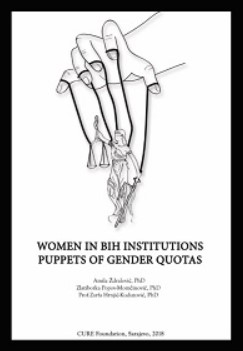
Keywords: Gender equality; Tuzla; Livno; Socio-economic research; Education; Violence in family;
Jedan od osnovnih principa Evropske unije čijom članicom nastoji postati i Bosna i Hercegovina je rodna ravnopravnost. Amsterdamski ugovor, te brojne direktive EU obavezuju države da u svojim politikama i programima doprinose jednakopravnosti žena i muškaraca. Rodna ravnopravnost je i jedan od 17 globalnih ciljeva Programa održivog razvoja do 2030. godine kojeg su usvojile članice Ujedinjenih naroda, a koji je proizašao iz Milenijumske deklaracije. Najvažniji dokument UN-a iz domena rodne ravnopravnosti je Konvencija o eliminisanju svihoblika diskriminacije žena. Ukidanje diskriminacije žena i djevojčica, kako stoji u Programu, nije samo osnovno ljudsko pravo, nego ima višestruki učinak na druga područja razvoja. Od 2013. BiH je i potpisnica Istanbulske konvencije. Rodna ravnopravnost koja podrazumijeva jednako učešće žena i muškaraca u svim sferama javnog i privatnog života, jednak status, jednaku involviranost u procese odlučivanja u politici, programe rada i prakse svih institucija, te jednak pristup društvenim resursima i jednake benefite od njih, dugoročno bi trebala rezultirati kvalitetnijim i humanijim životom u zajednici.
More...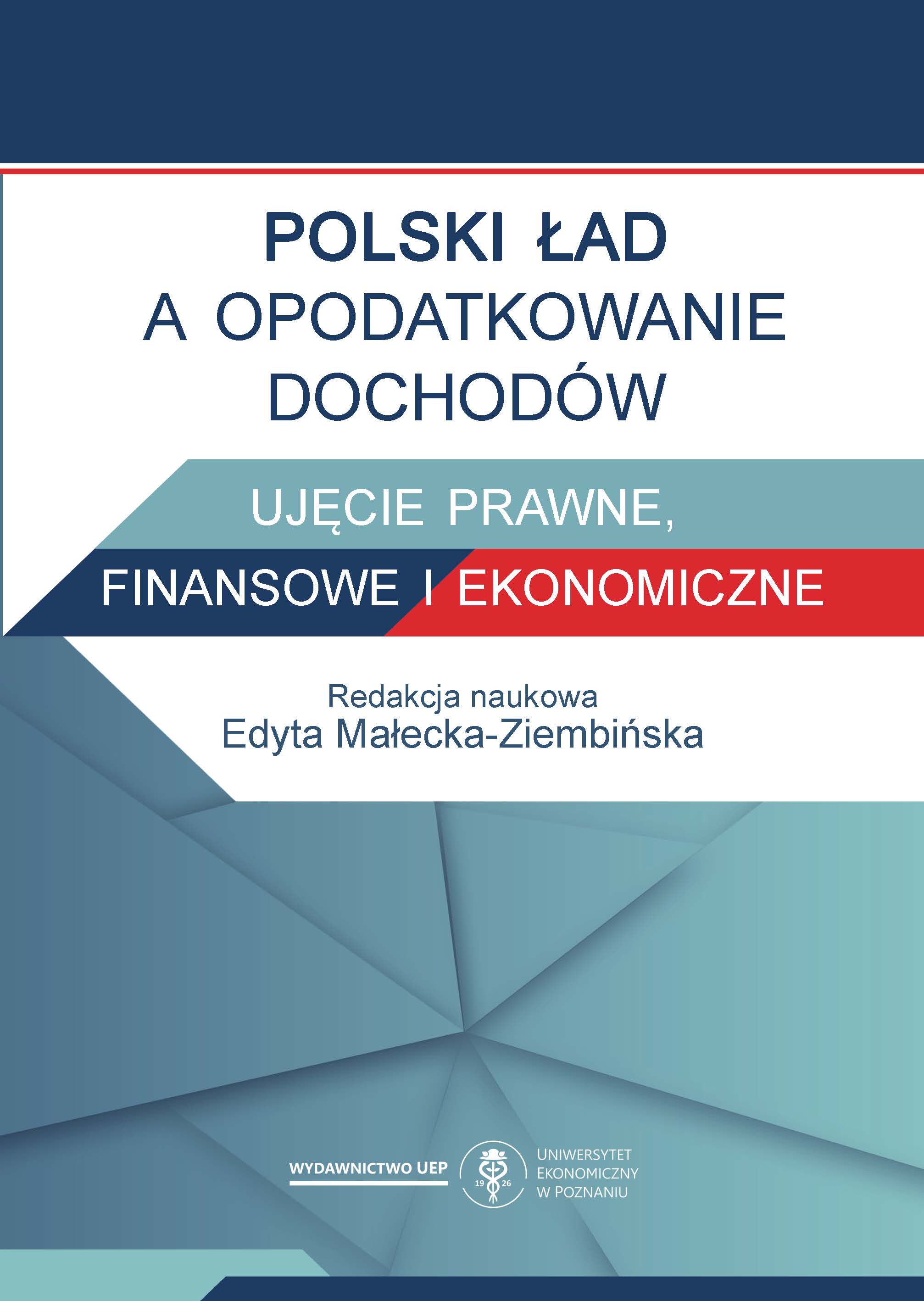
Keywords: Polski Ład;podatek dochodowy;podatek od dochodó osobistych;karta podatkowa;składki na ubezpieczenie;ryczałt od przychodów ewidencjonowanych;składka na ubezpieczenie zdrowotne;
Purpose: The aim of the chapter is to assess changes sanctioned under Polish Deal in the field of taxes and contributions imposed on the income of natural persons with a particular emphasison natural persons engaged in non-agricultural economic activities. Design/methodology/approach: The reasons for the introduction of the legislative changes and their economic effects were discussed. Findings: Polish Deal in the field of taxes and contributions on natural persons affects various functions of budgetary policy: revenue collection, redistribution, stabilisation and stimulation. Of particular importance are changes in the rules of calculating and deducting health insurance contributions. The impact of Polish Deal on labour supply and entrepreneurship is not clear-cut.
More...
Keywords: Polski Ład;CIT;CIT estoński;opodatkowanie dochodów;dywidenda;
Purpose: The aim of the paper is providing the characteristics and general evaluation of influence directions and tax efficiency of selected regulations introduced to the Corporate Income Tax Act, so called Estonian CIT, minimal income tax and enterprise restructuring taxation (introduced to corporate income tax as a part of Polish Deal). Design/methodology/approach: Due to the recent time of introducing the solutions and limited accessibility of empirical data, the method of the analysis of possible financial consequences and the legal-comparative method have been used. The demonstration of basic financial consequences for business entities and the budget that result from the introduced regulations has been attempted. Findings: The evaluation of the Estonian CIT construction from the point of view of facilitation of the business development activity and cheapening of self-financing costs is generally positive. The minimal income tax as an attempt in insulating the corporate income tax using multipart tax base is not evaluated in such an unequivocal way. The revenue taxation, being a part of the tax base, may bring regular income to the budget. The effective estimation and control of the remaining elements of the tax base may be more difficult.
More...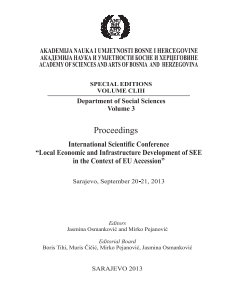
Keywords: Legal and constitutional role; Local authorities; Economical and infrastructural development; European Charter on Local Self-Government;
Basic aim of this article is to present constitutional and legal role of local authorities within economic and infrastructural development of municipalities and cities in Bosnia and Herzegovina. Hence, it presents two models. Basic hypothesis that will be verified in this article is: local authorities, based upon their legal jurisdiction, are able to provide important contribution to the local economic and infrastructural development. Methodology consists of case study method in two cases. The first case study is Municipality of Gračanica in Federation of Bosnia and Herzegovina, and the second case study is City of Bijeljina in Republic of Srpska. Time period of this research is post Dayton period, with distinctive focus on the period 2008– 2012. Territorial frame of this research is Bosnia and Herzegovina. Also, in the process of verification of this research, other relevant methods have been used. This article is systematized in six chapters: introductory approach on local community and local self-government; political-legal concept of local self-government in the regulations of European Charter on Local Self-Government; legal and statutory concept of municipality and city jurisdiction in the area of local economic and infrastructural development; main aspects of the role of local self-government unit in the local economic and infrastructural development; model of local economic and infrastructural development in the local communities: case study of Municipality of Gračanica; model of local economic and infrastructural development in the local communities: case study of City of Bijeljina and conclusion.
More...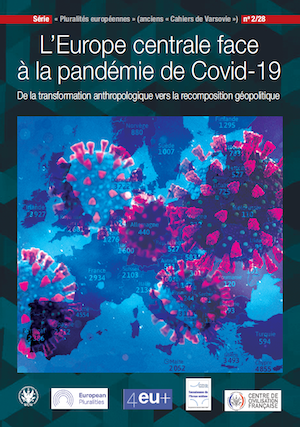
Keywords: Covid-19; pandemic; Three Seas Initiative; International Monetary Fund; North-South Gas Corridor; Poland
The Three Seas Initiative (3SI) is a platform for political cooperation created in 2016 that brings together twelve Central and Eastern European countries. The objective of this organization is to address the gap in economic development with Western Europe and to strengthen regional resilience against actors such as Russia and China through the development of infrastructure in the sectors of energy, telecommunications and transport. In September 2020, the 3SI’s development policy was encouraged by a report from the International Monetary Fund (IMF) which sees it as a solution for reviving the European economy following the Covid-19 pandemic. Consequently, the pandemic becomes an argument for the 3SI to attract capital to the projects it carries. However, the projects supported by the 3SI are not only structured by economic objectives but also by strategic objectives. We will illustrate the geopolitical dimension of the 3SI with a case study: the North-South Gas Corridor.
More...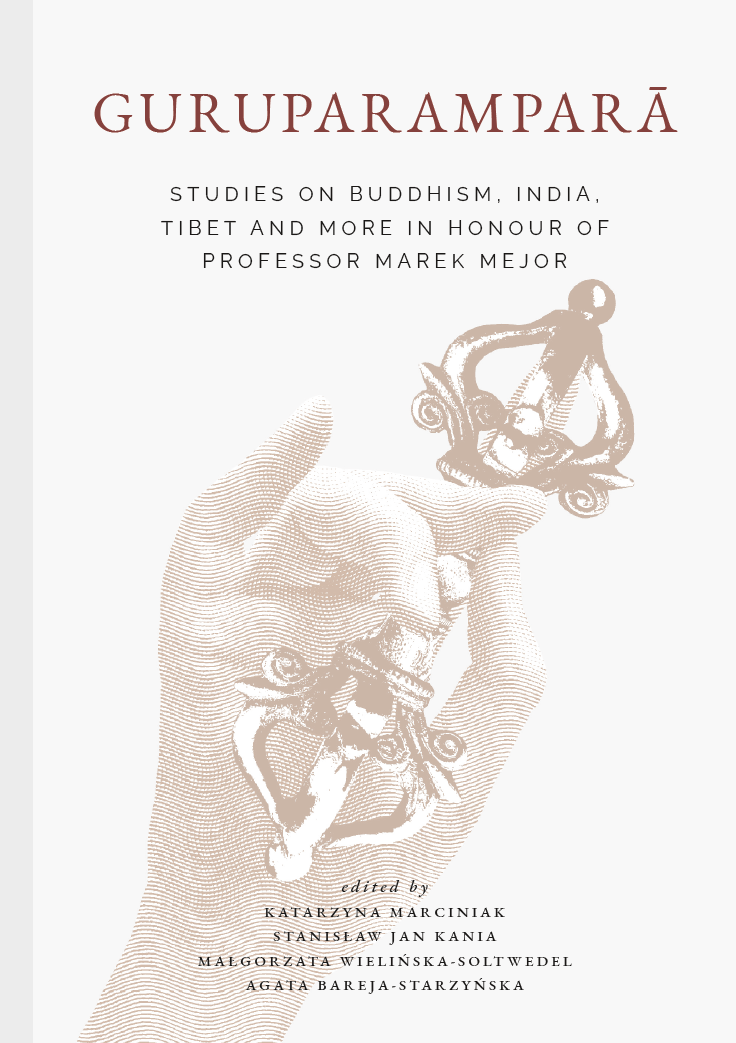
Keywords: Sanskrit and Pali grammar; Cāndravyākaraṇa; Cāndravr̥tti; Cāndrapañjikā; Candragomin; Ratnamati; Moggallāna
In this article a simple rule from Candragominʼs Cāndrasūtra, namely Cān 1.2.108, identical with rule 3.2.162 in Pāṇiniʼs Aṣṭādhyāyī, and the comments on it presented in the Cāndravr̥tti are discussed in some detail. The main commentary on this sūtra turns out to be quite important and particularly revealing, since it contains an interesting literary example, namely doṣāndhakārabhidura- “cleaving the darkness of faults / splitting the blackness of night”, which is attested in Candragomin’s own Śiṣyalekha, or “Letter to a Disciple”. While this passage from the Cāndravyākaraṇa has already attracted the attention of earlier scholars, it is discussed here for the first time in the light of the later Cāndra tradition, in particular taking into consideration the lucid scholarly explanation found in Ratna’s Cāndrapañjikā and the treatment of the same grammatical issue in Pali dealt with in Moggallāna’s grammar and Saṃgharakkhita’s commentary on it. It is shown, among other things, that the passage in the main Sanskrit commentary on Cān 1.2.108 certainly does not contradict the old idea, first introduced by Bruno Liebich, about a common authorship of the Cāndrasūtra and the Cāndravr̥tti, and in fact rather supports this proposition, which – apparently in vain – a few later scholars were tempted to put in doubt.
More...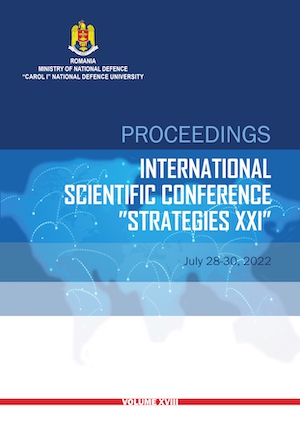
Keywords: cohesion crisis; liberal democracy crisis; Strategic Compass; Strategic Concept; strategic autonomy; Russian-Ukrainian war;
The present paper approaches the significant contextual aspects in which 2022 NATO and EU strategic revision process is taking place. The study premises that Russian unjustified military aggression on Ukraine and the subsequent security challenges for the European security environment are only the most recent, visible, and implicitly, attention catching ones, and that the background of the current strategic revision of both NATO and the EU is wider and marked by the succession of internal and external crises in the last decade. However, despite the need to approach all these challenges, Russian invasion of Ukraine has a key role in these organizations’ strategic revision, as it can be considered a wake-up call, an undeniable proof that both NATO and EU have to adapt their role in the regional and international security context. Through this rather descriptive approach, this paper is meant to bring to attention the complexity of the current international and regional context, shaping NATO and EU strategic revision. Also, we will argue that one of the main challenges that are to come after this revision will consist in dealing with NATO-EU relation in the best possible manner. In order to do so, the argumentation will be built departing from the general regional context, taking in consideration both internal and external trends, continuing with the origins and signification of NATO and EU strategic revision. This will be the basis on which we intend to reveal some of the challenges of NATO-EU relation and how this relation was impacted by the unjustified Russian military aggression on Ukraine. The argumentation capitalizes recent events with relevance for NATO and EU approach to security and is built on inputs from the level of population perception on NATO and EU, as well as from national foreign politics and trends specific to the organizations themselves. Given that this paper was written before NATO actually published its 2022 Strategic Concept, the author will mostly capitalize on EU’ s official documents and, implicitly, on EU’ s perspective. The study concludes that despite the highly conflict-prone context, there is also a favourable ground not only for the EU to progress in its military dimension but also for doing this in full coordination with NATO, avoiding duplications.
More...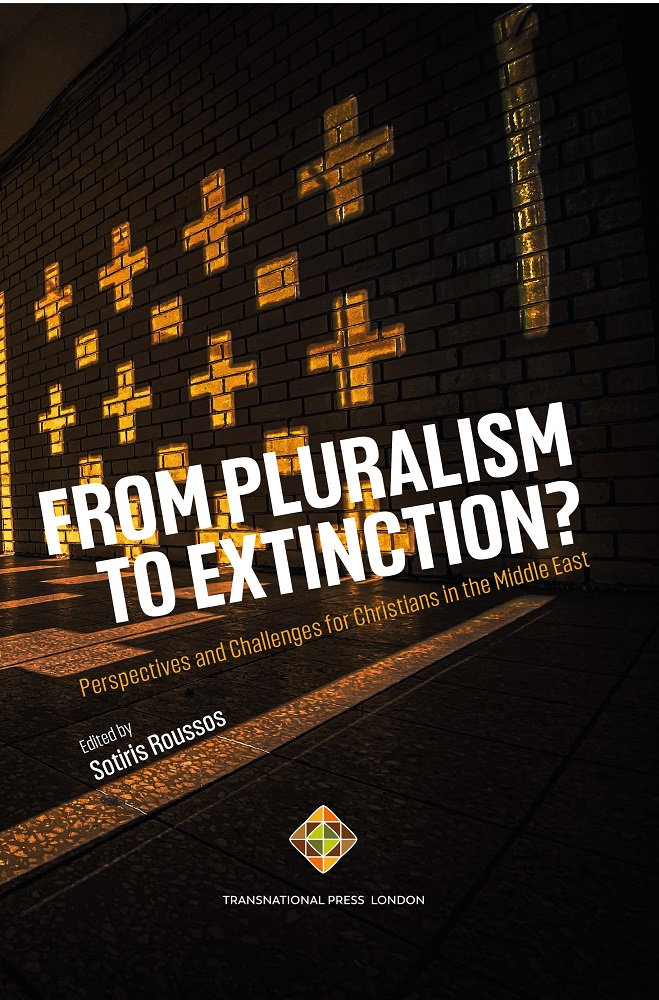
Keywords: Turkish Policies; Christians; Exclusion; Turkey; non-Muslim; Ottoman Empire; multi-cultural; multi-religious; multi-ethnic; ethnic backgrounds;
The Republic of Turkey, as a direct heir of the Ottoman Empire, inherited the empire’s multi-cultural, multi-religious, and multi-ethnic diversity. As a result, entering into modernity, Turkey itself is composed of several peoples with different ethnic backgrounds, among which a Christian community. Christians, once an essential composite of the Ottoman administration, is now a very small percentage of the total population, with its vast majority now living in Istanbul itself. With the fall of Istanbul in 1453, the proportion of the non-Muslim population in the Ottoman Empire reached 60 per cent overnight. This made it impossible for the Ottomans to rule over many different peoples through a legal system based on sharia. The millet system “set in motion the development of an order that involved autonomy and decentralisation for non-Muslim groups but within religious hierarchy”.
More...